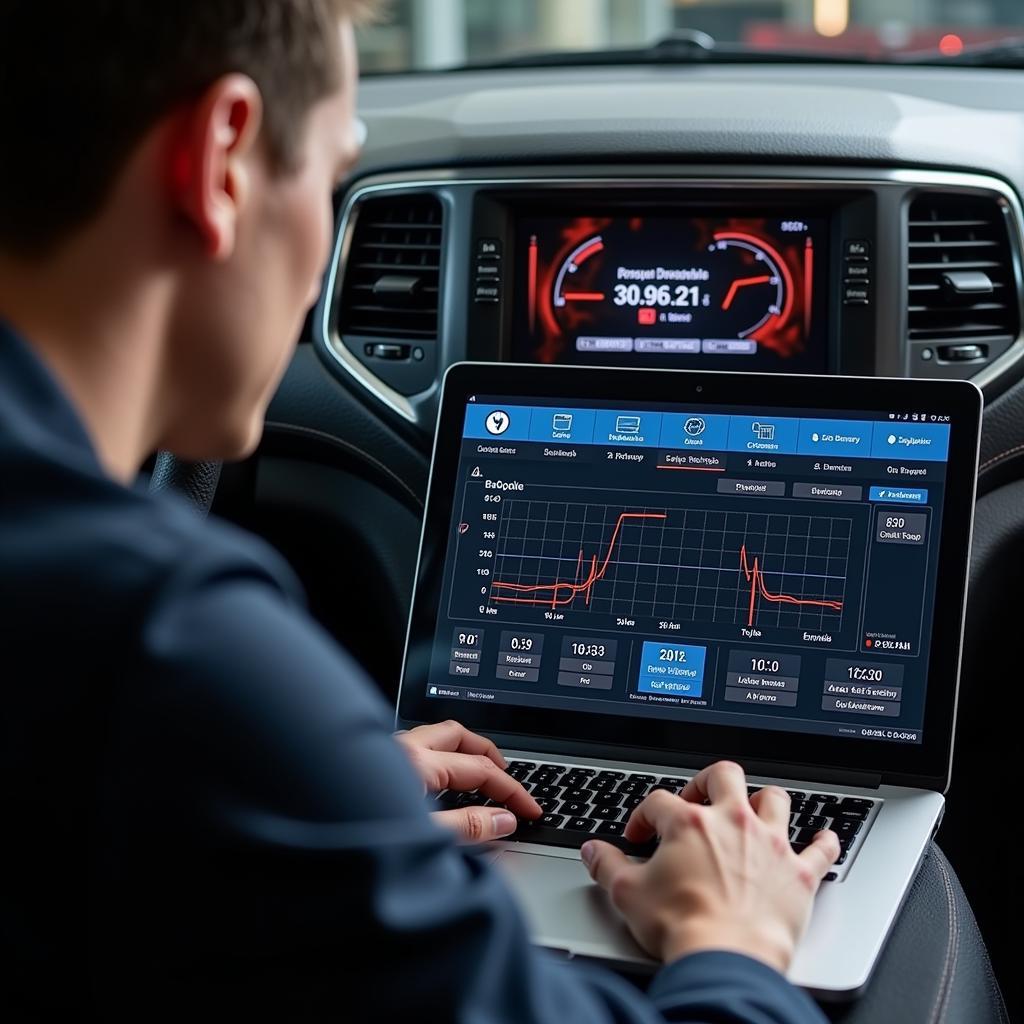A car battery losing charge when not connected is a common yet frustrating problem. This can leave you stranded with a dead battery, disrupting your plans and requiring a jump-start. This article will delve into the various reasons why your car battery might be discharging when not in use, and offer practical solutions and preventative measures to help you avoid this issue.
Why is My Car Battery Draining When Not Connected?
There are several potential culprits behind a car battery losing charge when disconnected. Identifying the source of the drain is crucial to implementing the correct fix. Let’s explore some of the most common reasons:
Parasitic Drain: The Silent Battery Killer
A parasitic drain, also known as a “phantom drain,” occurs when an electrical component continues to draw power even after the ignition is off and the car is parked. This can be caused by faulty wiring, malfunctioning relays, or even interior lights left on.
-
Faulty Wiring: Damaged or corroded wires can create a short circuit, allowing electricity to flow continuously, draining your battery.
-
Malfunctioning Relays: Relays are electromagnetic switches that control various electrical systems in your car. A stuck relay can cause a constant power draw, leading to a discharged battery.
-
Interior Lights: While seemingly insignificant, leaving interior lights, glove compartment lights, or trunk lights on can drain your battery over time.
Bad Battery: The Usual Suspect
A failing battery is another common cause of charge loss. Over time, the internal components of a battery degrade, reducing its ability to hold a charge. Extreme temperatures can accelerate this process.
-
Age: Car batteries typically have a lifespan of 3-5 years. As they age, their performance declines.
-
Extreme Temperatures: Both extreme heat and cold can negatively impact a battery’s performance and lifespan.
Faulty Alternator: The Charging Culprit
The alternator is responsible for recharging the battery while the engine is running. A faulty alternator can fail to adequately recharge the battery, leading to a gradual discharge even when the car is parked.
How to Diagnose a Car Battery Losing Charge
Pinpointing the cause of a draining battery requires some investigative work. Here are some steps you can take to diagnose the problem:
-
Check for Obvious Drains: Start by ensuring all lights, accessories, and electronics are turned off.
-
Perform a Parasitic Drain Test: This involves using a multimeter to measure the current draw with the ignition off. A reading higher than 50 milliamps indicates a potential parasitic drain.
-
Test the Battery: Use a battery tester to check the battery’s voltage and cold cranking amps (CCA).
-
Test the Alternator: Have the alternator tested to ensure it is functioning correctly.
Expert Insight: John Miller, Automotive Electrical Engineer
“A common mistake people make is assuming a dead battery is always the battery’s fault. Often, the issue lies with a parasitic drain or a faulty alternator.”
Solutions and Preventative Measures
Once you’ve identified the cause of the drain, you can implement the appropriate solution:
-
Repair or Replace Faulty Wiring: If a parasitic drain is caused by faulty wiring, repair or replace the affected wires.
-
Replace Malfunctioning Relays: Replace any faulty relays to prevent further drain.
-
Replace the Battery: If the battery is failing, replacement is the only solution.
-
Repair or Replace the Alternator: A malfunctioning alternator should be repaired or replaced.
 Installing a new car battery
Installing a new car battery
Expert Insight: Sarah Johnson, Certified Automotive Technician
“Regular battery maintenance, such as cleaning the terminals and checking the electrolyte levels, can significantly extend the lifespan of your battery.”
Conclusion
A car battery losing charge when not connected can be a nuisance. By understanding the common causes and following the diagnostic steps outlined in this article, you can effectively troubleshoot the problem and implement the appropriate solution. Remember to perform regular maintenance to prevent future battery issues and keep your car running smoothly.
FAQ
-
How long should a car battery hold a charge when not connected? A healthy car battery should hold a charge for several weeks or even months when not connected.
-
What is the normal voltage of a car battery? A fully charged car battery should have a voltage of around 12.6 volts.
-
Can a car alarm drain a car battery? Yes, a faulty car alarm can contribute to battery drain.
-
How can I prevent parasitic drain? Regularly check for and address any potential sources of parasitic drain, such as faulty wiring or malfunctioning relays.
-
How often should I test my car battery? It’s a good practice to test your car battery every six months, especially before the winter and summer months.
-
What is the average cost of a new car battery? The cost of a new car battery can vary depending on the type and brand, but typically ranges from $50 to $200.
-
Can I jump-start my car if the battery is drained due to a parasitic drain? Yes, you can jump-start your car, but it’s essential to address the underlying cause of the drain to prevent it from happening again.


